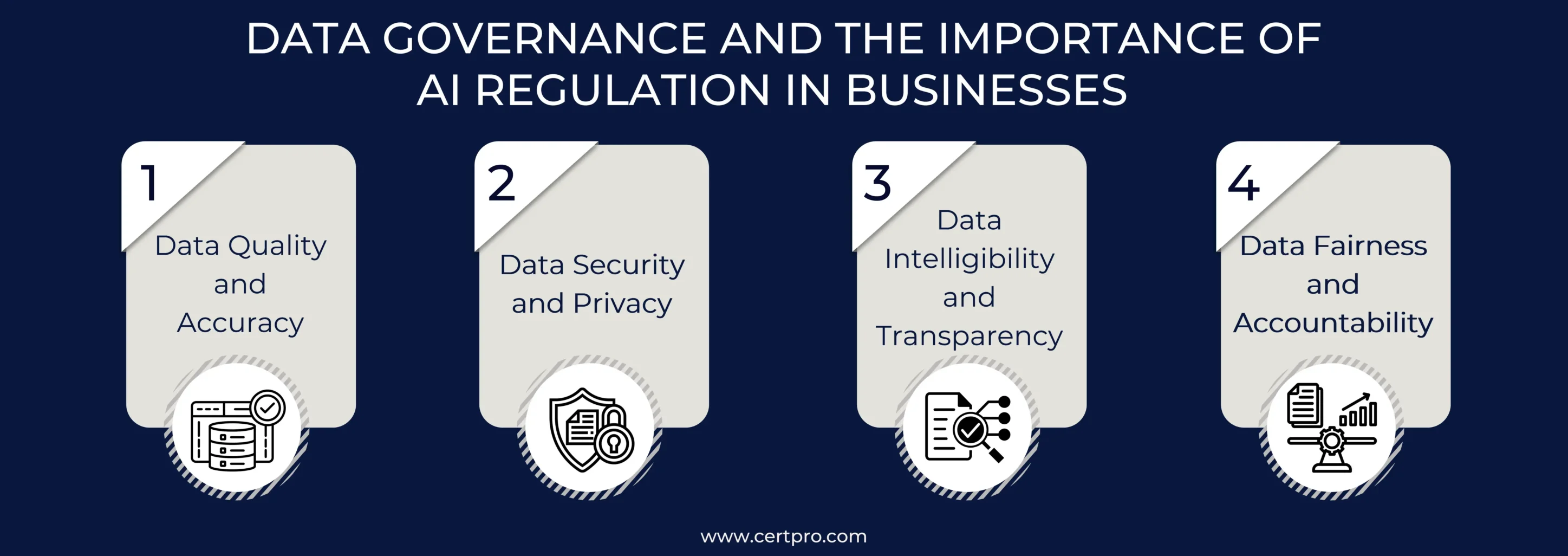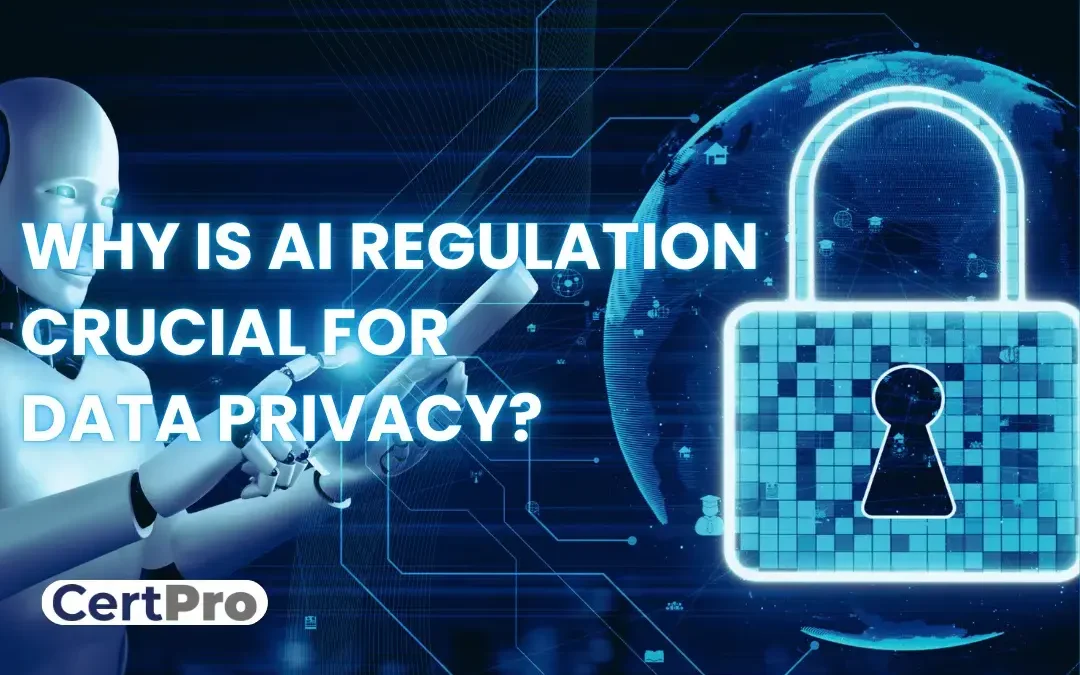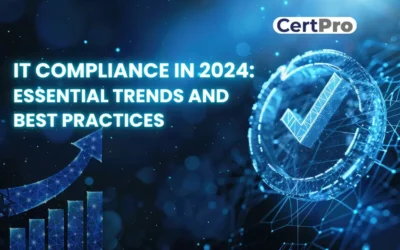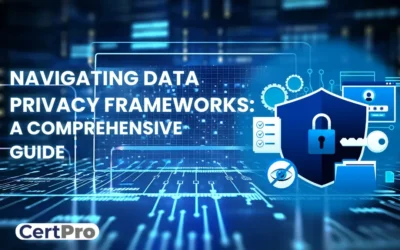In modern society, industries transform digitally as Artificial Intelligence knocks on the door. We feel the changes from supply chain management to user experiences. AI has now become a part of every small or large business. The best part is that AI is a powerful technology that helps increase business performance and customer satisfaction. However, technologies similar to AI have significant challenges in data privacy and compliance. In addition, AI is directly related to data collecting, processing, and analyzing processes that create concern about accuracy. Thus, AI regulation is essential to eliminate the risk of data breaches. Again, using AI increases the data explosion by 25% annually. Hence, data privacy laws try to impose strict obligations and restrictions on the use of AI to reduce the risk.
This article will delve into AI’s impact on data privacy and explain why AI regulation is necessary to maintain it. If you want to learn more about AI and data privacy, this article will help you understand AI regulation and AI regulation compliance.
THE ROLE OF AI IN BUSINESSES
AI technologies help businesses analyze data and customer experiences and stay updated on the latest privacy regulations. On the other hand, AI algorithms offer desirable data speed, which is unparalleled to human ability. Automating data processing accelerates data management and reduces the risk of human error. In addition, AI can help your businesses identify potential threats and assist in creating strategic decisions. Many industries use AI to analyze their customer behavior and trends. You will be amazed to hear that AI helps us to get personalized product recommendations on e-commerce platforms. Thus, it allows businesses to grab the target audience and acquire customers. It is not that AI technology requires governance; some industries use AI to manage their compliance with industry-specific regulations.
Therefore, AI technologies can assist you in checking your compliance status, monitoring data usage, and identifying potential threats and data breaches. Although AI helps us in many ways, it also can create new challenges and security issues. Hence, it is crucial to implement AI regulation compliance in organizations. It ensures that AI follows a strict protocol and is error-free.
DATA GOVERNANCE AND THE IMPORTANCE OF AI REGULATION IN BUSINESSES
In brief, data governance is a process that enforces policies, standards, and procedures to manage data throughout its lifecycle. It ensures that data quality, security, and privacy are maintained per the laws and regulations. On the other hand, compliance with AI regulation ensures that AI systems comply with the legal and ethical expectations of data protection. In addition, AI regulation compliance reviews the performance and behavior of AI systems in your organization. Here, we discuss some common challenges related to AI technologies and data privacy:
Data Quality and Accuracy: You may know that to perform AI technology, we need to educate them before AI functions. Thus, AI systems depend on large and diverse databases to train the system correctly. The data must be accurate, unbiased, and up-to-date in this training process. Otherwise, it affects the AI’s reliability, accuracy, and decision-making process. Thus, it is essential to confirm that the data used for AI training must be relevant and error-free and then will have a positive impact on the target population.
Data Security and Privacy: Sometimes, we use AI systems to process personal data related to health issues, financial details, and biometrics. Therefore, processing such data is subject to data protection laws and regulations. In this regard, the organization must have specific rules for handling sensitive data from unauthorized access and breaches. Thus, confirming the safety and security while processing sensitive data is essential. AI regulation compliance helps to review the privacy and security aspects of personal data and makes the process smooth and risk-free.
Data Intelligibility and Transparency: In some exceptional cases, AI uses complex and indistinct algorithms to make decisions. Therefore, it creates confusion as it is difficult for ordinary humans to interpret. The condition can increase the challenges of explaining and justifying the logic and rationale behind AI decisions, which can influence AI’s efficacy and accuracy. Thus, ensuring that AI systems are transparent and explainable is crucial to making the process easy. Also, ensure the data and algorithms are documented and accessible for better understanding.
Data Fairness and Accountability: AI systems can have biases, discrimination, or errors that can change decision-making processes and outputs. These mistakes or biases could be caused by the data, the algorithms, or the humans who designed, built, or trained the AI systems. This can make it challenging to ensure that the AI’s outputs and choices are fair, accurate, and reliable. Thus, auditing the data and algorithm before training the AI systems is imperative.

UNDERSTANDING THE LEGAL LANDSCAPE RELATED TO AI REGULATION
The legal landscape and requirements of data privacy are constantly changing. The increasing incidence of data breaches influences data privacy rules, and every sector improves its regulations to cope with threats. We also know that the European Union’s GDPR and California’s CCPA are the famous data privacy rules. Currently, the EU AI Act is also implemented to monitor AI, and ISO-implemented ISO 42001 is used to monitor organizations’ AI management systems.
GDPR: The General Data Protection Regulation (GDPR) law places many restrictions on the use of AI, making it more challenging and complicated. As per the law, the customer must have information about data collection and processing to maintain transparency. In addition, your organization cannot use the collected data for incompatible purposes. The law again emphasizes eliminating unnecessary data and prohibits the storage of data for long periods.
CCPA: The California Consumer Privacy Act (CCPA) allows consumers the right to know about their data. The customer has the right to get information about which company is using their data for which reason. In addition, they can make their data unavailable for specific reasons. The regulation creates challenges for AI.
EU AI Act: It ensures that AI systems used in the EU are safe and transparent for EU citizens. AI systems are supposed to be free from discrimination and valuable for the environment. In addition, the act confirms that humans will be responsible for AI errors and disputes.
ISO 42001 Certification: ISO developed the world’s first AI management certification. It is an international framework for reviewing and monitoring AI systems’ applications. The certification ensures that your organization is using AI safely and ethically.
AI can change business in many positive ways but poses many risks. Therefore, two US states restrict AI use: Colorado and Connecticut. The Colorado Privacy Act (CPA) allows customers to oppose the sale of their data for specific reasons. In addition, the Act outlines significant risks of discrimination and transparency of AI use. Similarly, the Connecticut Data Privacy Act (CTDPA) follows the same rules as California and Colorado. It overstresses the openness and fairness of AI.
If your company is using or deploying AI, recognizing the legal requirement per the jurisdiction in AI use is the most necessary step. You can get expert help from compliance auditing companies. The guidance will make the process less complicated and simpler for you.
BEST PRACTICES FOR DATA GOVERNANCE AND AI REGULATION COMPLIANCE
Data privacy regulations empower customers regarding access to their personal information. In this context, data privacy regulation can change or modulate the data using AI algorithms in your organization. In addition, the regulation allows users to choose how their data will be used or whether they wish to join the AI decision-making process. Your organization can follow the points stated below to continue the best practices in AI and data privacy:
Conduct a Data Protection Impact Assessment (DPIA): A DPIA is mandatory before purchasing or developing an AI system. Therefore, a proactive AIA helps recognize AI systems’ potential hazards. A DPIA is a specific risk assessment that mainly focuses on the data protection implications of AI systems. These efforts can help you plan accordingly and mitigate the risks of AI technologies.
Ensure the AI Capabilities: It is crucial to ensure that your AI systems satisfy the requirement of data privacy. Therefore, organizations must ensure that the AI system’s design and principles follow data regulations. The default setting confirms that the AI is free from errors.
Conduct Regular Monitoring: This process ensures data privacy regulations and expectations are followed. In addition, reviewing AI functions validates their performance and behavior. It creates trust and reliability in AI systems and finds the potential vulnerabilities in your systems.
Inform the AI-Related Details: Organizations must inform customers and stakeholders about their AI use. It helps create trust in the market; customers find it reliable to share their data and take AI’s help.
Take Consent for Data: Organizations must respect their customers’ preferences while using their data. Thus, obtaining prior consent before using their data in the AI training process is essential. It makes your AI more ethical and practical.
Demonstrate Compliance and Audibility: Compliance and audibility are the AI systems’ abilities to follow data privacy and compliance laws. Therefore, the audit helps review the use of AI and its impact on society.
GLOBAL STANDS ON NEW AI REGULATION
You must follow these new rules to stay competitive in the market. However, it is getting harder to harmonize regulations at the international level because international rules are becoming multipolar. Global companies must change and find ways to deal with legitimate regulations protecting fundamental rights in Europe. Interestingly, the US is changing its foreign digital trade policy to give itself more time to think about or rethink its AI regulation policies.
The EU rules make using AI difficult because they are difficult to understand. However, the UK is trying a softer approach to AI control. Other areas of government are taking a mixed stance. India used to hand off responsibility, but now it is telling tech companies they need to get permission before releasing AI tools that are not reliable or have not been tested yet.
In addition, we need to monitor the market and see how the new EU rules are implemented. However, the risk-based method built into the AI Act already affects real life. For example, the act explicitly forbids specific actions and labels AI systems as high-risk. This is because many data-driven companies are rushing to adopt AI. Thus, the debate these new rules have caused in some areas has made organizations more cautious. Hence, companies that deal with sensitive data are now trying to add new restrictions to their contracts with service providers. These restrictions are primarily about how AI systems can be used and trained.
FINAL THOUGHTS
It may be hard to keep customer information private, but it is essential for business continuity. Follow privacy rules to avoid getting fined, losing customers’ trust, and having trouble running your business. However, never let the complexities stop you from growing. You can get professional guidance and recommendations from CertPro for AI regulation. Today, we all are standing in front of a new door that must have many opportunities with some hurdles. Our knowledge and guidance can make the path smooth for you. We have experience in compliance regulations, and our guidance helps many firms get compliant. You can open up the same opportunities by collaborating with us.
CertPro assures you that our compact services assist you in developing trust in the market and using AI ethically to improve your business. Visit CertPro.com for more precise information about AI and AI monitoring processes.
FAQ
Why is AI a risk for data privacy?
AI systems often need to be able to access personal data. If this data is not adequately protected, it could lead to data violations or breaches.
What is the difference between GDPR and AI Act?
The difference between the AI Act and GDPR is how they can be used. The AI Act applies anywhere in the world to people who make, use, sell, or distribute AI systems sold or used in the EU, while GDPR concerns data security in the EU region.
How can AI help in data security?
AI is head of changing how data is protected because it offers intelligent and practical solutions. AI systems are made to constantly learn and change, which helps them predict and deal with potential threats effectively.
Why is data privacy important?
Data privacy is seen as a fundamental human right in many places. It is essential because people must believe their personal information will be kept safe and private. In addition, the organization cannot use anyone’s personal information without their consent.
What is the future of privacy and AI?
Encryption, anonymization, and data security may improve AI privacy technology’s future. As the amount and complexity of data continue to increase, more vital security steps will be needed to keep personal information safe.

About the Author
Tamali Ghosh
Tamali Ghosh is a seasoned creative content writing professional specializing in SOC 2, GDPR compliance, and ISO 42001. Her in-depth knowledge of cyber security and skillful writing capabilities make complex topics straightforward. Additionally, her writing helps the reader understand the rules and regulations in cyber security and information security practice.
IT COMPLIANCE IN 2024: ESSENTIAL TRENDS AND BEST PRACTICES
IT compliance is essential for every organization to secure the integrity and accountability of data. The process also helps develop the business and enhance its profitability. In today’s digital era, IT compliance has more than just a regulatory checkbox. It plays a...
POLICY MANAGEMENT SYSTEM: ESSENTIAL TOOLS FOR AUTOMATION AND SIMPLIFICATION
Growing businesses indicates that you become a master in your field and accurately manage all business-related policies. However, managing company policies can be daunting significantly when your business expands. Here, an effective policy management system can help...
NAVIGATING DATA PRIVACY FRAMEWORKS: A COMPREHENSIVE GUIDE
Globalization has intense effects on business functioning and scaling. In today's digital world, companies are generating an unprecedented rate of data that requires protection from emerging cyber threats. In addition, recurring data breaches and privacy concerns make...




